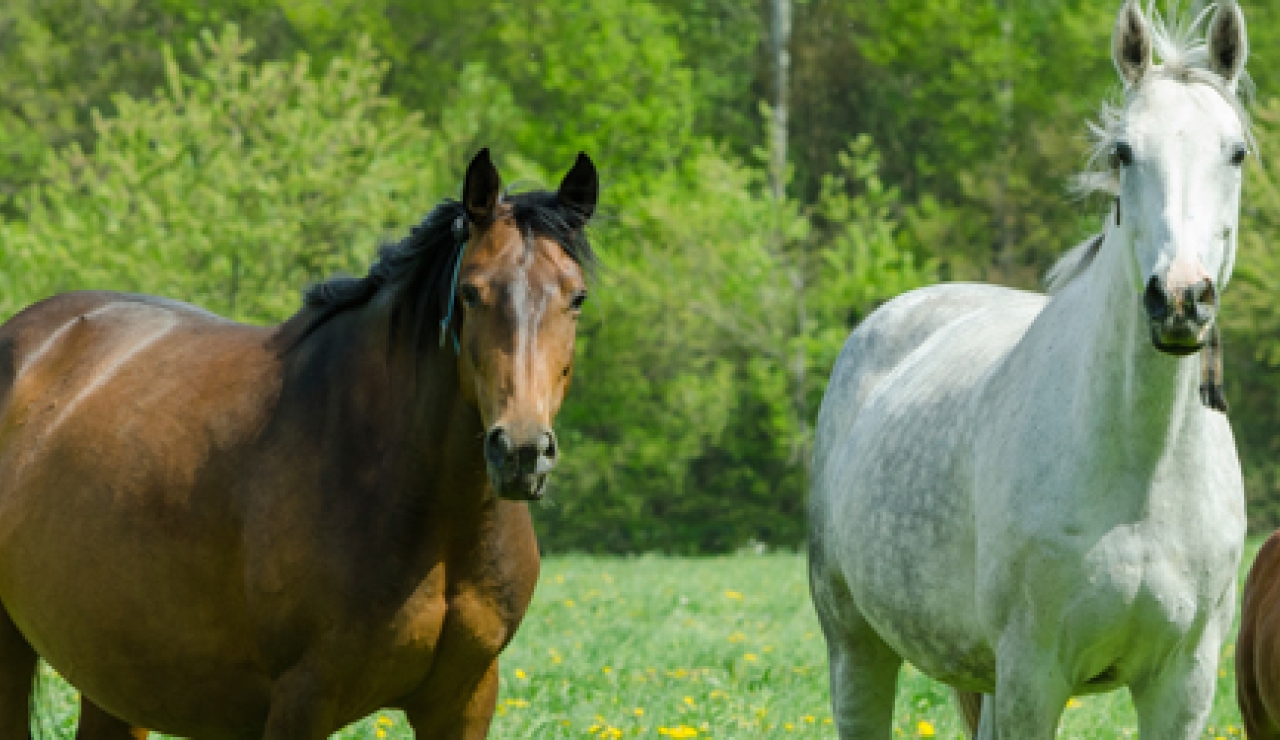Feeding your broodmare

Feeding your broodmare optimally through a balanced diet and adequate feeding practices is essential for her well-being and productivity, as well as for the health and development of the foal.
You can read the full text at: celebrite.coop/ (in french only)
Nutritional needs vary significantly from the beginning to the end of pregnancy because the fetus is growing exponentially. During the full duration of gestation and lactation, the mare should maintain a condition score of between 6 and 7 on a scale of 9. If weight loss is experienced, the ration must be adjusted to fill the energy requirements.
It is essential to meet the mare’s energy and protein needs. The increase in protein requirements during pregnancy is due to the demands for protein in the uterus, placenta and fetus. During lactation, adding protein is essential to prevent the exhaustion of the mare’s reserves and to ensure good milk composition.
Using hay with legumes (clover, alfalfa) is recommended, as is using a feed specifically for broodmares, such as Célébrité Materna, which is rich in digestible proteins and essential amino acids.
It is also important to provide the mare with sufficient quantities of vitamins and minerals according to the specific needs of the broodmare at different stages of gestation and lactation, since some studies have shown that mares draw nutrients from their own reserves when external sources of minerals are deficient.
Here are several tips that can help you in feeding your broodmare:
- Near the end of the gestation period, mares have less space in their intestinal tract, which makes it difficult for them to consume the required amounts of hay to meet their growing needs. For this reason, increasing the amount of concentrates, or use of complementary forage such as Écono-Foin, may be necessary.
- Because of the large amount of feed that is sometimes required to fill the needs of the mare during lactation, the daily ration should be distributed over several feedings to facilitate the absorption of nutrients and to avoid digestive problems.
- During gestation, a number of mares sometimes have insulin-resistant tendencies. It is therefore recommended to use a feed with a low to moderate glycemic index such as Célébrité Lino-Force (at the beginning of gestation) and Materna feed (from the middle of pregnancy onwards).
- Also remember that water consumption increases considerably during lactation. It is therefore essential for the mare to have access to fresh, clean water at all times.
References:
1. NRC. 2007. Nutrient Requirements of Horses, Sixth Revised Edition. National Academy Press, Washington, D.C.










